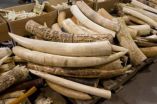(Press-News.org) A chance meeting between two leading UK and US scientists could have finally helped solve a key mystery in cancer research.
Scientists have long known that chromosomal defects occur as cells repeatedly divide. Over time, these defects are linked to the onset of cancer.
Now, Professor Duncan Baird and his team from Cardiff University working in collaboration with Eric A. Hendrickson from the University of Minnesota, have identified a specific gene that human cells require in order to survive these types of defects.
"We have found a gene that appears to be crucial for the evolutionary processes that can drive cancer" said Professor Baird from Cardiff University's Institute of Cancer and Genetics.
"This is a new role for this gene, making it a potential therapeutic target," he added.
As cells divide their telomeres — the DNA "caps" that protect the ends of chromosomes from damage — shorten, leaving the chromosomes vulnerable to sticking to each other.
In normal cells, this chromosome stickiness is a death knell — a signal to trigger the defective-cell clean-up process to move in and help finish them off.
Malignant cells, however, are somehow able to elude this clean-up process.
The current research, published in journal Cell Reports, identifies an essential component that allows older cells to evade death.
Using sophisticated gene-targeting techniques to disable particular genes in human cells and then studying the impact on telomere fusion, the researchers found that cells escaped death only when the gene Ligase 3 was active but not when its action, which appears to promote fusion within like chromosomes rather than between different chromosomes, was blocked.
"Telomere dysfunction has been identified in many human cancers, and as we have shown previously, short telomeres can predict the outcome of patients with [chronic lymphocytic leukemia] and probably many other tumor types," according to Professor Baird.
"Thus, the discovery that Ligase 3 is required for this process is fundamentally important," he adds.
Interestingly, the research was made possible by a chance meeting between Cardiff's Professor Baird and Professor Eric Hendrickson from the University of Minnesota at an international conference.
The pair quickly discovered they were both looking at the role of Ligase 3 in cancer, they decided to collaborate.
"The collaboration paid off as we were able to uncover something that neither one of us could have done on our own," Professor Hendrickson says.
Importantly, additional studies are already underway. In particular, the reliance on Ligase 3 appears, in turn, to be dependent upon the activity of another key DNA repair gene, p53.
"Since p53 is the most commonly mutated gene in human cancer, it now behooves us to discover how these two genes are interacting and to see if we can't use that information to develop synergistic treatment modalities," added Professor Hendrickson.
INFORMATION:
Scientists uncover key piece to cancer cell survival puzzle
2014-08-07
ELSE PRESS RELEASES FROM THIS DATE:
Regulations needed to identify potentially invasive biofuel crops
2014-08-07
URBANA, Ill. – If the hottest new plant grown as a biofuel crop is approved based solely on its greenhouse gas emission profile, its potential as the next invasive species may not be discovered until it's too late. In response to this need to prevent such invasions, researchers at the University of Illinois have developed both a set of regulatory definitions and provisions and a list of 49 low-risk biofuel plants from which growers can choose.
Lauren Quinn, an invasive plant ecologist at U of I's Energy Biosciences Institute, recognized that most of the news about invasive ...
Peer-reviewed paper says all ivory markets must close
2014-08-07
NEW YORK (August 7, 2014) – The message is simple: to save elephants, all ivory markets must close and all ivory stockpiles must be destroyed, according to a new peer-reviewed paper by the Wildlife Conservation Society. The paper says that corruption, organized crime, and a lack of enforcement make any legal trade of ivory a major factor contributing to the demise of Africa's elephants.
Appearing in the August 7th online edition of the journal Conservation Biology, the paper says that if we are to conserve significant wild populations of elephants across all regions ...
Carnegie Mellon's new programming language accommodates multiple languages in same program
2014-08-07
PITTSBURGH—Computer scientists at Carnegie Mellon University have designed a way to safely use multiple programming languages within the same program, enabling programmers to use the language most appropriate for each function while guarding against code injection attacks, one of the most severe security threats in Web applications today.
A research group led by Jonathan Aldrich, associate professor in the Institute for Software Research (ISR), is developing a programming language called Wyvern that makes it possible to construct programs using a variety of targeted, ...
Stock prices of companies that use the same underwriter tend to move together
2014-08-07
HOUSTON – (Aug. 7, 2014) – The stock prices of companies that use the same lead underwriter during their equity offerings tend to move together, according to a new study by financial economics experts at Rice University and the University of Alabama.
"We tested the hypothesis that investment banking networks affect stock prices and trading behavior," said James Weston, a professor of finance at Rice's Jones Graduate School of Business. "Consistent with the notion that investment banks such as Goldman Sachs and Merrill Lynch serve as information hubs for segmented groups ...
Elderly with depression, mild cognitive impairment more vulnerable to accelerated brain aging
2014-08-07
PITTSBURGH, Aug. 7, 2014 – People who develop depression and mild cognitive impairment (MCI) after age 65 are more likely to have biological and brain imaging markers that reflect a greater vulnerability for accelerated brain aging, according to a study conducted by researchers at the University of Pittsburgh School of Medicine. The findings were published online in Molecular Psychiatry.
Older adults with major depression have double the risk of developing dementia in the future compared with those who have never had the mood disorder, said senior investigator Meryl A. ...
Largest cancer genetic analysis reveals new way of classifying cancer
2014-08-07
Researchers with The Cancer Genome Atlas (TCGA) Research Network have completed the largest, most diverse tumor genetic analysis ever conducted, revealing a new approach to classifying cancers. The work, led by researchers at the UNC Lineberger Comprehensive Cancer Center at the University of North Carolina at Chapel Hill and other TCGA sites, not only revamps traditional ideas of how cancers are diagnosed and treated, but could also have a profound impact on the future landscape of drug development.
"We found that one in 10 cancers analyzed in this study would be classified ...
Physical fitness can help prevent young adolescents' depression, study finds
2014-08-07
WASHINGTON – Physically fit sixth-graders – especially girls – are less likely to report feeling depressed when they reach seventh grade, according to a study presented at the American Psychological Association's 122nd Annual Convention.
Even when researchers considered existing symptoms of depression and weight, sixth-grade girls who performed better on a cardiorespiratory fitness test were less likely to feel depressed when they were surveyed again in seventh grade. There was a smaller but similar effect on boys' depression, according to the findings presented by Camilo ...
Fundamental plant chemicals trace back to bacteria
2014-08-07
MADISON, Wis. — A fundamental chemical pathway that all plants use to create an essential amino acid needed by all animals to make proteins has now been traced to two groups of ancient bacteria. The pathway is also known for making hundreds of chemicals, including a compound that makes wood strong and the pigments that make red wine red.
"We have been trying to unravel the source of the phenylalanine amino acid for some time," says Hiroshi Maeda, an assistant professor of botany at the University of Wisconsin-Madison. "Plants use this pathway to make natural products ...
Cell mechanics may hold key to how cancer spreads and recurs
2014-08-07
CHAMPAIGN, Ill. — Cancer cells that break away from tumors to go looking for a new home may prefer to settle into a soft bed, according to new findings from researchers at the University of Illinois.
Some particularly enterprising cancer cells can cause a cancer to spread to other organs, called metastasis, or evade treatment to resurface after a patient is thought to be in remission. The Illinois team, along with colleagues in China, found that these so-called tumor-repopulating cells may lurk quietly in stiffer cellular environments, but thrive in a softer space. The ...
Climate warming may have unexpected impact on invasive species, Dartmouth study finds
2014-08-07
Rising temperatures may be seen as universally beneficial for non-native species expanding northward, but a Dartmouth College study suggests a warmer world may help some invaders but hurt others depending on how they and native enemies and competitors respond.
The study, which sheds light on the uncertain relationship between climate change and invasive species, appears in the journal Ecology. A PDF of the study is available on request.
Climate change and invasive species rank among the largest predicted threats to global ecosystems over the next century, but they are ...


